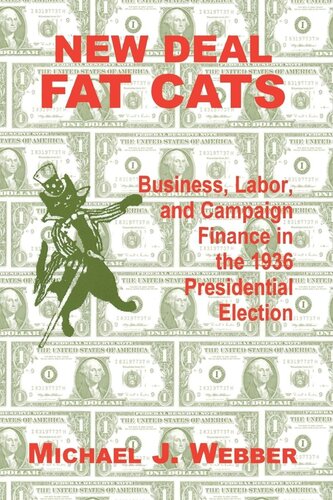

Most ebook files are in PDF format, so you can easily read them using various software such as Foxit Reader or directly on the Google Chrome browser.
Some ebook files are released by publishers in other formats such as .awz, .mobi, .epub, .fb2, etc. You may need to install specific software to read these formats on mobile/PC, such as Calibre.
Please read the tutorial at this link: https://ebookbell.com/faq
We offer FREE conversion to the popular formats you request; however, this may take some time. Therefore, right after payment, please email us, and we will try to provide the service as quickly as possible.
For some exceptional file formats or broken links (if any), please refrain from opening any disputes. Instead, email us first, and we will try to assist within a maximum of 6 hours.
EbookBell Team

4.8
44 reviewsIn New Deal Fat Cats, Michael Webber offers a fresh perspective on the New Deal. The author analyzes the role of various segments of society in party politics during the political change brought on by the Great Depression. Webber uses analysis of campaign contribution as a major method of evaluating the 1936 presidential election. Today’s readers may be surprised at the statistical breakdown of the group that reelected FDR. These groups ranged from southern Democrats and organized labor, to Catholics, Jews, and small businesses. A considerable portion of the author’s analysis rests on interpretive literature about the politics of the New Deal and specifically about the role of business in the construction of those politics. The emphasis of this work is on the coalition of what seem to be disparate elements in society suggesting that large and monolithic power blocks are not necessarily the road to major political change in U.S. society. The reader will begin to sense the seemingly divisive pressures from different groups that made the New Deal not only a paradox, but an effective social reality.